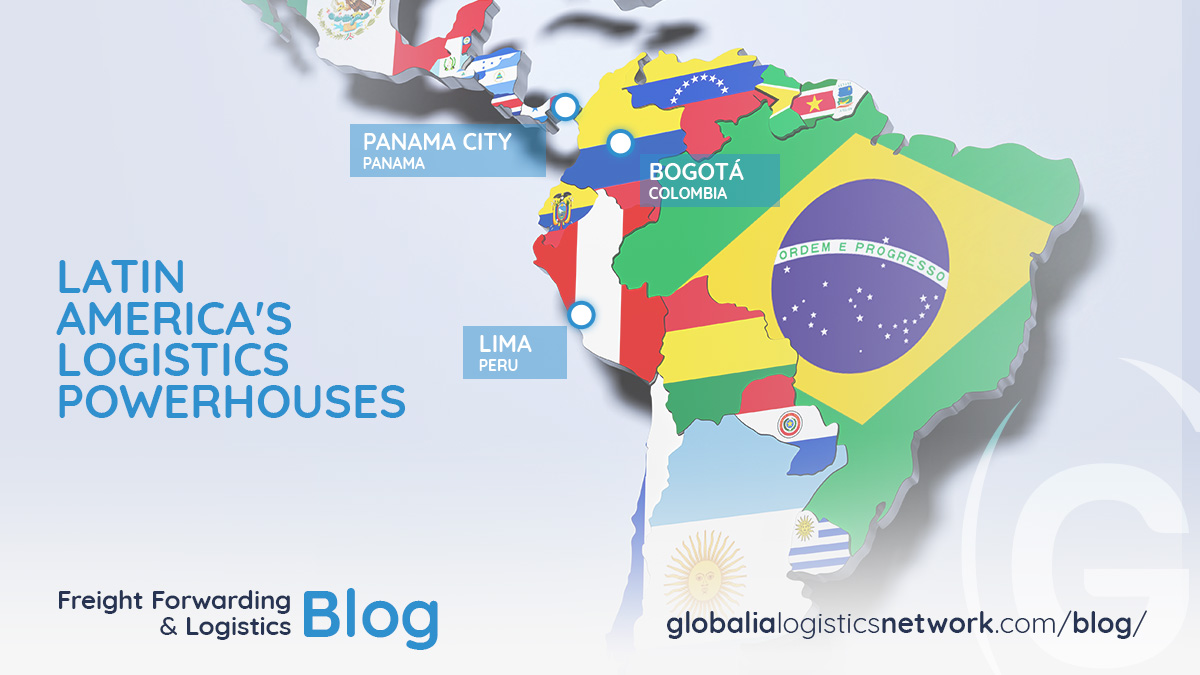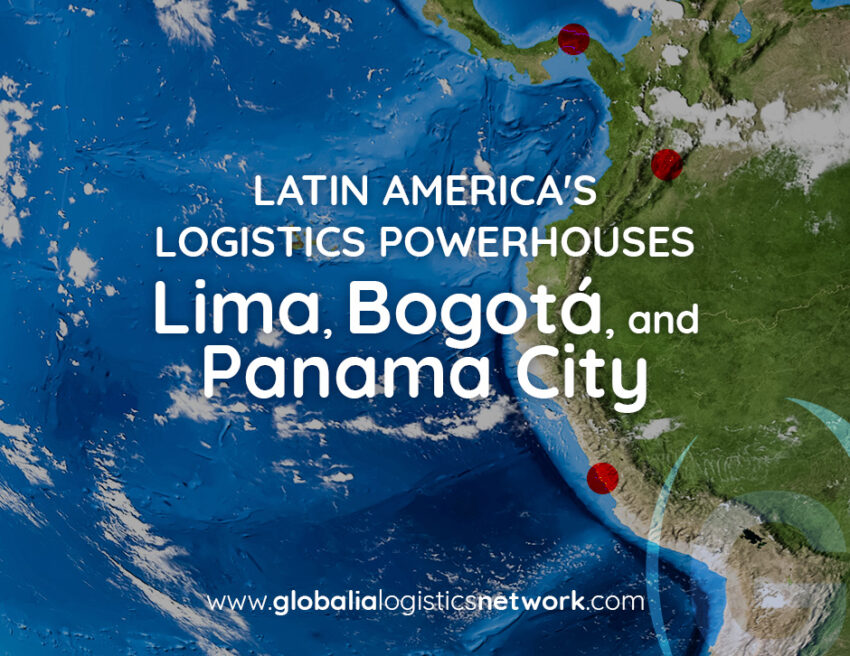Global trade isn’t what it used to be. Rising geopolitical tensions, supply chain disruptions, and the harsh lessons of overdependence on any single region, especially Asia have prompted multinational companies to reassess how and where they operate. Increasingly, they’re relocating production and distribution closer to key consumer markets. That shift is turning the spotlight onto Latin America. Countries across the region are stepping up, and cities like Lima, Bogotá, and Panama City are emerging as serious logistics contenders. They offer a mix of strategic geography, improved infrastructure, free trade zones, and logistics-friendly policies that make them ideal alternatives or complements to traditional Asian routes.
For independent freight forwarders in Latin America, this isn’t just background noise. It’s a real chance to break into new trade lanes, build regional expertise, and offer clients smarter, faster solutions for moving cargo across the Americas. Understanding how these hubs work and what sets them apart is becoming a key differentiator in an increasingly competitive market.

Lima: Peru’s strategic gateway to the Pacific
Lima, the capital of Peru, is emerging as a logistics and freight forwarding hub on the west coast of South America. Thanks to its proximity to Asia-Pacific routes and its evolving infrastructure, it has become a key player in freight forwarding in Latin America.
Strengths:
- Port of Callao: The largest and busiest port in Peru, handling over 90% of the country’s maritime cargo.
- Jorge Chávez International Airport: A leading air cargo terminal with strong links to both North and South America.
- Free Trade Agreements: Peru’s FTAs with the U.S., China, and the EU make it attractive for global shippers.
Lima is particularly strong in sectors like mining exports, agriculture (asparagus, blueberries, avocados), and textile manufacturing. As Peru continues to invest in logistics modernization, Lima will only become more attractive for international freight. For freight forwarders, having a reliable partner in Lima is essential, especially when handling temperature-sensitive cargo, port transshipments, or multimodal distribution.
Members of the Globalia Logistics Network based in Lima bring local expertise with international standards, ensuring faster clearances and smoother operations.
Bogotá: Colombia’s air cargo leader
Bogotá, Colombia’s capital and economic engine, has made a name for itself as one of Latin America’s logistics powerhouses, particularly in the air freight sector.
What sets Bogotá apart:
- El Dorado International Airport: Ranked as one of the busiest air cargo airports in Latin America, handling pharmaceuticals, electronics, and most notably, flowers.
- Diverse Export Base: Colombia exports coffee, textiles, flowers, industrial goods, and even processed foods, many of which depend on fast, secure air freight.
- Improving Road Networks: The 4G and 5G road infrastructure programs are connecting inland production centers with Bogotá and the coast.
Bogotá is especially critical for time-sensitive cargo like fresh-cut flowers, which must reach global markets in a matter of hours. Freight forwarders in Latin America who want to offer dependable, high-speed service need local expertise in airport operations, customs protocols, and regional distribution.
That’s where being part of a vetted network like Globalia Logistics Network can help. Members in Bogotá have trusted relationships with vetted logistics partners from nearly 200 cities that can help them ship to/from anywhere in the world.
Panama City: The logistics nerve center of the Americas
You can’t talk about Latin America’s logistics powerhouses without mentioning Panama City. Strategically located at the crossroads of North and South America, and home to the world-famous Panama Canal, it’s a critical hub for maritime and air cargo alike.
Why Panama leads:
- Panama Canal: Connecting the Atlantic and Pacific, it drastically reduces travel time for global shipping lines.
- Colon Free Trade Zone: The largest free trade zone in the Western Hemisphere.
- Tocumen International Airport: A key air cargo center, with direct links to over 80 cities across the Americas.
- Multimodal Capabilities: Seamless connection between ports, airports, and roadways.
Panama City isn’t just a transit point, it is a full-fledged logistics platform. Global companies use it for regional warehousing, inventory management, and cross-docking. It’s also ideal for re-export operations due to its tax benefits. Freight forwarders working through Panama can offer their clients shorter lead times and cost savings.
What forwarders can gain by focusing on these cities
Tapping into Latin America’s logistics powerhouses gives forwarders several strategic advantages:
- Access to Growing Markets: Peru, Colombia, and Panama are seeing increased trade flows from both intra-regional and intercontinental partners.
- Diversification: For clients tired of the delays and unpredictability in traditional lanes (like Asia-Europe), Latin America offers faster alternatives.
- Sector Expansion: From cold chain logistics to e-commerce fulfillment, these hubs offer room for niche services.
However, capitalizing on these advantages requires local knowledge, vetted partnerships, and the ability to provide value-added services beyond basic transportation. This is where independent freight forwarders often struggle—unless they are part of a global network.
How Globalia Logistics Network supports forwarders in Latin America
Globalia Logistics Network is designed for independent freight forwarders looking to scale without losing autonomy. For those operating in or targeting Latin America, the network offers:
- Exclusive representation in each city so that there is no competition among members
- A curated roster of vetted partners with strong track records
- Digital tools to speed up quoting, tracking, and communication
- Marketing and sales support to help you grow your visibility
- Opportunity to participate in yearly in-person conferences
Whether you’re moving coffee from Bogotá, avocados from Lima, or electronics through Panama City, being part of Globalia means you don’t have to navigate customs, airport handling, or port transfers alone. You’ll have trusted partners in every link of the chain.
Apply now before your spot is taken!
Final thoughts
The rise of Latin America’s logistics powerhouses is reshaping freight forwarding across the Western Hemisphere. Cities like Lima, Bogotá, and Panama City are proving that Latin America isn’t just catching up—it’s helping redefine how global supply chains operate.
For independent freight forwarders, this is a moment of opportunity. But success in these markets isn’t just about knowing where to ship—it’s about knowing who to work with. By partnering with members of Globalia Logistics Network, you gain local expertise, global reach, and the confidence to handle even the most complex shipments.
Want to future-proof your business and take advantage of Latin America’s freight boom?


